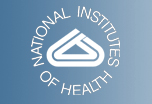
To this end, SACGHS looked at whether changes are needed in patenting and licensing practices that affect genetic testing, and the appropriateness, feasibility, and implications of policy options in its draft report on Gene Patenting and Licensing and Their Impact on Patient Access to Genetic Tests. The report makes several recommendations that would restrict the ability to obtain or undermine the enforceability of patents and exclusive licenses with respect to genetic tests.
In the fall of 2006, SACGHS initiated a study to assess the positive and negative effects of gene patenting and licensing practices on patient and clinical access to genetic tests and on the public’s health and quality of life. In March 2009, SACGHS released a Public Consultation Draft Report on Gene Patents and Licensing Practices and Their Impact on Patient Access to Genetic Tests for public comment until May 15, 2009. During the summer of 2009, SACGHS reviewed comments and any relevant new data. The final draft report and recommendations were then discussed at SACGHS’ October 2009 meeting.
The Biotechnology Industry Organization (BIO) provided comments to the Advisory Committee taking issue with many of the draft report’s recommendations, which were not supported by the Committee’s own findings and case studies. Those findings and case studies show how patenting and exclusive licensing practices can be necessary to foster the development of valuable genetics tests for patients, particularly those with rare disorders, and that they have other positive impacts – such as incentives to promote physician and patient education, broader insurance coverage, and improved compliance. Those real benefits were largely ignored by the Committee in proposing its over-reaching and restrictive recommendations.
The report showed:
Based on its review of the literature, case studies, and review of international policies regarding gene patents, SACGHS found little in the way of broad or consistent evidence that indicates either positive or negative effects of gene patents on patient access to diagnostic tests.
Apparently, the Committee just had a gut felling that patents are bad. See their own vague conclusions:
What role did patents play in the commercialization of the genetic tests?
The case studies suggest that for those who secured a patent on a gene-disease association, there was an incentive to commercially develop a genetic test. [A] patent apparently is not uniformly a necessary incentive to develop or commercialize a genetic test. Patents, however, may be necessary to stimulate commercial development of genetic tests for rare alleles.
How did patents and licensing practices affect availability?
The case studies generally found that for patented tests that were licensed to many providers, there was no evidence of any limitations on availability. Where there is a sole provider, due to the patent holder practicing the patent exclusively or licensing exclusively to a single entity, the effects on availability can be positive or negative.
What is the potential that the patent may cause some future harm?
The case studies note that patents relating to genetic tests could hinder the anticipated increase in multiplex genetic testing and the foreseeable clinical use of whole genome analysis/sequencing (emphasis added).
So, they did a big ol’ study and found that patents can provide an incentive to commercialize and that patent rights give companies exclusionary rights over others. I’m shocked. And so was BIO:
The patent, licensing, and tech transfer system in this country is, by any objective measure, working quite well overall. The evidence shows that decisions about what patents to seek and how best to license them are decisions that are best made by the researchers and their commercial partners, who have the greatest incentives to achieve widespread patient access to their discoveries,” concluded Greenwood. “Enacting these recommendations would risk thousands of jobs across the country by stifling university-industry partnerships and undermine the country’s global leadership in biotech innovation.”
SACGHS own report acknowledges that the patent system is designed “to promote the progress of science and useful arts” by granting to inventors, for a limited period of time, the right to exclude others from making, using, or selling the patented invention. This approach to encouraging scientific research and development involves a tradeoff between the incentive exclusive rights can provide for innovation and the potential costs from granting such exclusive rights.
So, why is everyone suddenly beating up on gene patents? Anti-gene patent proposals are not new. Reps. Xavier Becerra (D-Calif.) and Dave Weldon (R-Fla.) tried to kill them with the Genomic Research and Accessibility Act, which sought to prevent the patenting of “nucleotide sequences” along with their “functions, correlations, or the naturally occurring products [they] specify.” More recently, the ACLU filed a suit claiming that patenting genes is unconstitutional for limiting research and the free flow of information, and as a result violates the First Amendment.
A lot seems to have to do with the government wanting to pay less for healthcare. But, knocking out a segment of patents is a short-term solution. Everyone wants to save money but killing gene patents would only yield access to patented gene patents already developed. What is to happen regarding incentivizing commercialization of future developments.
BIO’s comments are available here. BIO’s more comprehensive comments on the draft report are here.

Very nice to read…